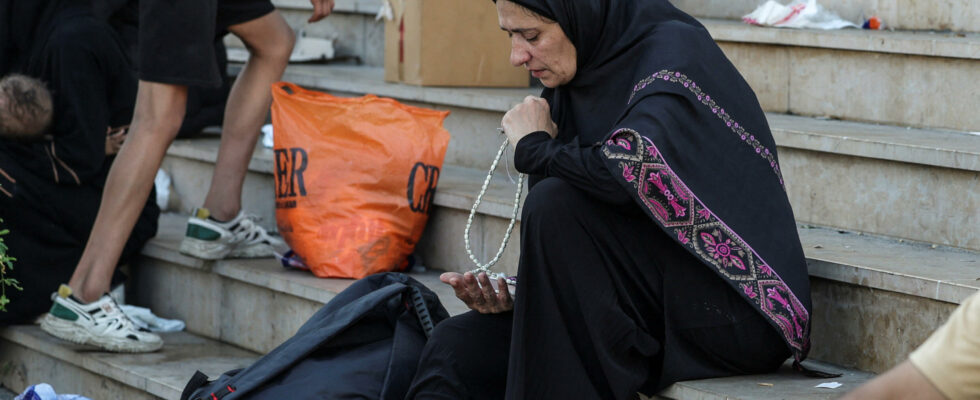As Israeli bombing of Lebanon intensified, the Lebanese population fled. Nearly a million people have been displaced, according to Lebanese Prime Minister Najib Mikati. Those who can leave the country jump on the few flights available at Beirut International Airport.
4 mins
It’s been a week since international airlines suspended their flights to the Lebanon because of Israeli bombings, report our special correspondents in Beirut, Aabla Jounaïdi And Jad El Khouri. The only carrier now, the national airline Middle East plays a vital role in enabling Lebanese in the diaspora like Nadine, originally from Tripoli in the north, to return home.
“ I go to Sweden, I live there. I came to spend five days here and then all this happened “, she says. “ My flight was canceled and I’ve been in Lebanon for almost two weeks. I had to take a Middle East flight. »
She deplores the rise in the price of plane tickets to leave. “ I don’t even know how I found it at this price! Agencies take advantage of this to sell you tickets for 2 000.2 500 dollars when it’s four times cheaper in reality with two pieces of luggage. I only took one suitcase because I wanted to leave quickly. The situation is very scary », worries Nadine.
The buzz of Israeli drones above the airport area
Youssef also returns to Europe and it’s heartbreaking. He comes from southern Lebanon, a region shelled by the Israeli army.
“ Israel does not spare civilians, children. This is what scares, what terrorizes “, he insists. “ Anyone who says otherwise is a liar. We live abroad. We come to visit Lebanon, our homeland, where we were born, where we grew up and where we always come back. How far will it go? Our whole life is made up of blood and successive terrors. We do not know how to find tranquility, stability. »
Above the airport area, Israeli drones drone incessantly. A presence intended to deter any aircraft deemed suspicious from landing at Beirut international airport.
Also read“We lost everything”: testimony of a Franco-Lebanese family displaced in Beirut
Largest population displacement in Lebanon’s history, says Lebanese Prime Minister
The Prime Minister Najib Mikati already speaks of the largest population displacement in Lebanon’s history – a million people, or one in six Lebanese, could be thrown onto the road in search of a safe place. The United Nations High Commissioner for Refugees is indeed preparing for a major humanitarian crisis.
“ The situation is very worrying in Lebanon. Now there are more than 200,000 displaced people. But if we talk about the border with Syriarather 70,000 people crossed the border, including Syrians », explains UNHCR spokesperson Matthew Saltmarsh, reached in Geneva by Heike Schmidt of RFI’s international service.
“ They are Syrian refugees who were in Lebanon and who decided to return home. There are more than a million Syrian refugees in Lebanon and, for some, they have made the decision to return home because they have the idea that it is safer at home now, compared to Lebanon. Frankly, it’s difficult in both countries. We can say that in Syria it is still dangerous, it is not entirely stable, but there are fewer direct attacks now in this country compared to Lebanon. »
Displaced people tossed around
These displaced people are therefore tossed between two countries at war. UNHCR is activating its network to provide them with assistance. “ In Lebanon, we work with the government, with UN partners, but also NGOto provide blankets, mattresses and raw materials », underlines Matthew Saltmarsh. “ There are people sleeping in the streets. There is a very chaotic situation in the transport network also in Syria. We have a network because we support displaced people already in this country and therefore we are at the border, we can provide transport. We have a network of community centers where we can give them a little assistance and support. »
The World Food Program (WFP) distributes bread, hot meals and aid packages to families in refugee camps across the country. Its regional director Corinne Fleischer believes that Lebanon is “ at a breaking point and can no longer endure another war. »
Also readLebanon: delivery of aid for displaced people depends on associations
